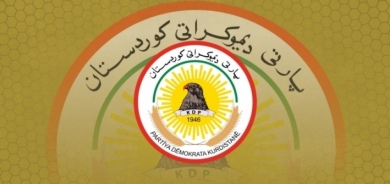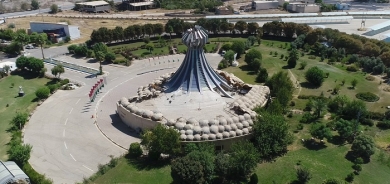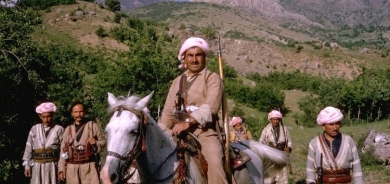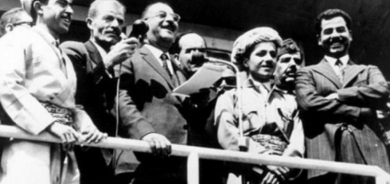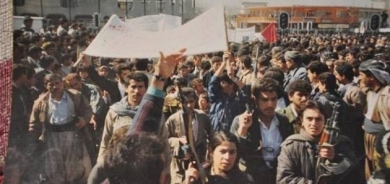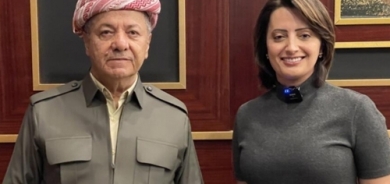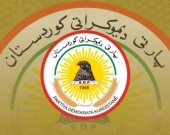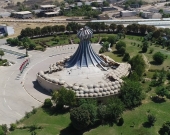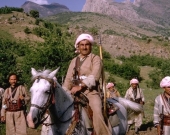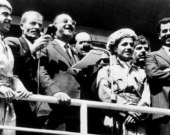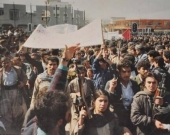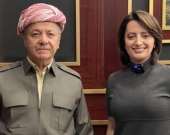THE IRAQI KURDISTAN REGION’S ROLE IN DEFEATING ISIL
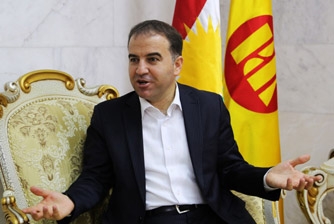
Spring is the time for rebirth, renewal, and transformation. Rather than enjoying this spring, the international community is busy analyzing and sketching a collective strategy to diminish and ultimately destroy the barbaric terrorist group known as the Islamic State of Iraq and the Levant, hereon referred to as ISIL.
Since the fall of 2014, the international community has been implementing strategic military operations to defeat ISIL. While the anti-ISIL coalition is carrying out military airstrikes in Iraq and Syria, Kurdish military forces known as the peshmerga are fighting ISIL on the ground, in the Iraqi Kurdistan Region (herein referred to as the Kurdistan Region) and other parts of Iraq. This is the current situation. With unified efforts and collaboration between international players, the anti-ISIL coalition has managed to diminish this deadly terrorist group. As the next step is to destroy ISIL, we need to consider the necessary military and non-military steps that need to be taken to gain full control of the situation. The task of defeating and ultimately destroying ISIL can be classified into two phases: military strategy and collective strategy. The first phase can be further broken down, as the peshmerga have done. When ISIL started attacking Kurdish-controlled territory, the peshmerga implemented an immediate process that consisted of three phases: (1) stopping ISIL’s march towards the Kurdistan Region; (2) pushing ISIL back and liberating the areas it seized; and (3) defeating ISIL on the borders of the Kurdistan Region and in Iraq as a whole. Using this strategy, the peshmerga achieved great victory in the first and second phases. In the third phase the peshmerga cannot alone succeed. As of today, the
Peshmerga do not have the type of weapons and weapon systems required to carry out the third phase. There is a great need for military support from the international community as well as advanced weapons.
In addition to military strategy, to destroy this terrorist group, there needs to be a collective response – specifically, an international, comprehensive, collective strategy that fully supports the peshmerga forces. The peshmerga are the only force battling ISIL on the ground, and the only force that has been successful in defeating ISIL. As such, the international community has begun to realize the important role of the peshmerga and is beginning to think about supplying them with necessary weapons. Furthermore, international coalition partners have authorized military personnel to carry out air support and work with partner nations to conduct targeted airstrikes in Iraq and Syria as part of a comprehensive strategy to degrade and defeat ISIL. Battlefield operations and military airstrikes must continue against ISIL in Iraq and Syria until this group is diminished and destroyed, because ISIL is not only a regional threat but is an international threat as well, and the situation needs an international response.
By committing unthinkable, gross, and systematic violations of international law, ISIL has managed to harm civilians, and continues to target civilians based on their ethnicity. ISIL has caused instability in Iraq, Syria, and the broader Middle East, and poses a great threat to regional peace and security. Furthermore, ISIL continues to recruit thousands of foreign fighters to join their ranks in Iraq and Syria. For these reasons, we must act now and act accordingly.
Battlefield operations and military airstrikes must continue against ISIL in Iraq and Syria until this group is diminished and destroyed, because ISIL is not only a regional threat but is an international threat as well, and the situation needs an international response.
To better understand the current crisis and to implement a successful strategy, the developmental stages of this crisis must be completely understood. The horrific images of innocent victims: Kurds, Yazidi Kurds, Muslims, Christians, locals, and foreigners massacred and raped, beheaded, and burned alive in Iraq shocked the whole world. This barbaric terrorist group’s initial plan was to head towards Mosul in order to liberate imprisoned group members. Their aim was not to take over the city and expand in the region. But this is exactly what inadvertently took place last summer.
It is worthwhile to remember the context of the rise of ISIL and the crucial developments that took place during the Summer of 2014. The rise of ISIL is due to many factors, including the failed attempt to impose a unified Iraq upon the region, failures in Prime Minister Nouri al-Maliki’s governance, and a lack of trust and cooperation among the different groups in Iraq. The flames of sectarian conflicts were fanned by sectarian and autocratic policies endorsed by Maliki, the disenfranchisement of the Sunnis in Iraq, the violation of the constitution, and the overall failed governance in Baghdad.
Furthermore, the lack of a national army in Iraq and the building of a sectarian army – also known as the “voting army” for Maliki – in order to manipulate election results in his favor is another factor. Hence, in previous elections, Maliki received more than 500,000 votes from the army. Another key element that has contributed to the rise of ISIL is the socio-political environment in Iraq, which has been a permissive environment for the rise and strength of ISIL. For the reasons given here, it is our perspective that ISIL is the overall product of Maliki’s failed governance in Iraq.
It is a widely accepted perspective that ISIL is not the illness in the region, but rather the symptom of the illness in the region, caused primarily by these failed policies. Iraq or the Kurdistan Region would not be in the current situation had the government in Baghdad listened to the warnings given by Kurdish officials, as well as our American friends and regional colleagues. Instead, we are now in a deadly battle and a humanitarian crisis.
Before the fall of Mosul to ISIL, in December 2013, Kurdish officials alerted the Iraqi Federal Government in Baghdad about an imminent threat from
ISIL against the city and offered support by sending its peshmerga forces to defend the area. Unfortunately, our warnings fell on deaf ears. Six months later, on 9 June 2014, Mosul fell to the hands of these barbaric militants. In the hours following the Mosul attack, five Iraqi Military Divisions and one Federal Police
Division completely melted away and tens of thousands of troops abandoned their posts and heavy weapons to ISIL. In a matter of hours, ISIL evolved from a ruthless terrorist organization to an unprecedented terrorist state. But it is not just the military capabilities of ISIL that should concern the international community. It is the unparalleled financial revenues funding terrorism in the Middle East and elsewhere in the world.
To put this in broader terms:
• ISIL generates somewhere between three to six million dollars per day by selling oil, Iraqi and Syrian artifacts, and wheat on the black market;
• It receives money from donations, ransoms, and taxes;
• It controls an area larger than Jordan;
• It possess advanced weapons and is fighting on several fronts;
• Thousands of foreign fighters from across the world, including many from European countries, are flocking to the Middle East to join ISIL.
With these financial capabilities and growing sympathy for the group, the unthinkable could happen. The international community must be prepared to take into account all factors of this equation. Today, ISIL is operating in Iraq and Syria – tomorrow, they might be in your background. The even more terrifying fact is that there has been underground recruitment to bring young people into this barbaric terrorist group. Hence, people joining ISIL from around the world should be of concern to every freedom-loving nation.
In a matter of days after the fall of Mosul, hundreds of thousands of families fled to the Kurdistan Region, creating a humanitarian crisis and a burden because of limited resources. We are providing refuge to more than 1.5 million refugees and Internally Displaced Persons (IDPs), which are now 20 percent of the Kurdistan Region’s population. Imagine an increase of 20 percent in a population in a matter of a few months; how would one handle such a development, especially one that requires an immediate response?
Furthermore, with advanced capabilities gained from the attack on Mosul, ISIL attacked the town of Sinjar on 3 August 2014, managing to take control of the town and commit terrifying atrocities. In the meantime, we called on our friends and allies for military assistance. We are grateful to the US and members of the international coalition, as well as European countries for heeding our desperate call to provide critical air support, but this was not enough – more has to be done. Today, the crisis continues. Not only are we battling the deadliest terrorist group known to mankind with limited weapons, but we are also obligated to provide humanitarian aid to people that seek refuge. Our borders are never closed to anyone escaping oppression and systemic killings.
The costs of an ongoing war, coupled with the 1.5 million refugees and IDPs – including Christians, Yazidis, Kurds, and Arabs – are straining our ability to care for these people. We provide hospitality without any significant financial or in-kind support from the Iraqi Federal Government. More importantly, the Iraqi Federal Government continues to pressure Western countries that are sending humanitarian aid, ammunition, and light-to-medium arms to go through Baghdad for inspections before reaching the Kurdistan Region, thus delaying the shipments. These delays are costing lives on the frontline and endangering those in need of food, water, and shelter. The international community needs to realize that this is its responsibility as well – and attending to this population is its duty to mankind. In addition, the international community needs to realize that more must be done to destroy this terrorist group by acknowledging that our
Peshmerga need to be further assisted. Specifically they need to be militarily supported and provided with necessary weapons to properly battle ISIL. Our peshmerga are fighting with Kalashnikovs; realistically speaking, they cannot win this battle with such simple, outdated weapons. Also, let us not forget, any international response must include the Peshmerga because they have been the only force to successfully defeat ISIL on the battlefield and have re-taken 17,000 square kilometers of territory. Of course, with victory comes great sacrifice. We have lost more than 1,500 peshmerga in this battle. Most of these casualties were due to lack of proper equipment.
During the past few months, ISIL seized territory in northern Iraq, western Iraq, and eastern Syria. Fortunately, however, peshmerga forces and continued airstrikes by the anti-ISIL coalition have degraded them. The Peshmerga will stay on the offensive against ISIL until the group is defeated completely.
Coalition partners are also committed to eliminating the threat posed by ISIL, but to do so, three elements must be addressed: (1) incorporation of Sunnis into the coalition against ISIL; (2) stronger efforts and willingness by the Iraqi Army to take an active role in this war; and (3) the international coalition’s willingness to fully support the peshmerga, both strategically and militarily, especially with regards to necessary weapons needed to win this battle.
The bottom line is that the peshmerga forces cannot fight this battle alone and with limited weapons. We stand ready to do our part in degrading and defeating ISIL in the region as well as contributing to the stability of Iraq, Syria, and the broader Middle East, but our peshmerga forces must be provided with arms, equipment, and training. There has been general agreement among the coalition partners about the positive role of our peshmerga and the Kurdistan Region in handling this war and its ensuing humanitarian crisis. We, as the Kurdistan Region with our peshmerga forces cannot ignore the current situation and crisis. We take full responsibility for the safety and security of our people as well as our brothers and sisters who seek refuge in the region, and as such must defend them against any force that threatens their safety and security.
We, as the Kurdistan Region and the peshmerga forces are appreciative of the support given by the international coalition but we need further military assistance. The support of the coalition forces through air strikes and the shipment of some of the weapon systems needed to combat ISIL are not adequate to destroy this terrorist group. It is not enough to just liberate Mosul, and it certainly is not enough to implement a hurried strategy to defeat ISIL. As long as ISIL is in Mosul, ISIL poses a great threat to the Kurdistan Region, Iraq as a whole, the Middle East, and the entire world. Over and over again, the Kurdistan Region has proven its loyalty to its friends, allies in the region, and the international community, but thus far our call for necessary arms to defeat ISIL has been ignored. It is time to listen to the Kurdistan Regional Government, and to assist and act accordingly for the sake of regional peace as well as international peace and security.

